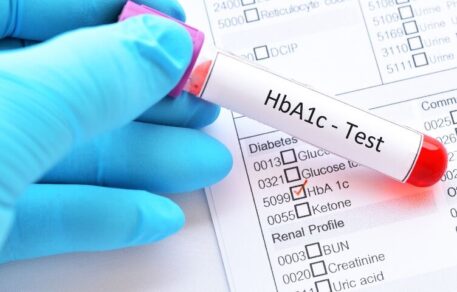Type 2 diabetes test may be inaccurate for people with South Asian heritage

A gene variant found almost exclusively in people of South Asian heritage affects the accuracy of the standard HbA1c test used to diagnose and monitor type 2 diabetes.
Research, presented at the Diabetes UK Professional Conference 2024, showed that nearly eight per cent of people of South Asian heritage carry the gene, suggesting that blood sugar levels may be underestimated in around 32,000 South Asian people with diabetes and 17,500 with prediabetes in England.
Diagnosis delays of up to two years were found to be common in people of South Asian heritage in England, highlighting the need to urgently investigate the link between a person’s ethnicity and the accuracy of the HbA1c test further.
Related Article: Be alert to pancreatitis in patients using GLP-1 weight-loss drugs
In England, estimates show there are over 420,000 people from a South Asian background living with diabetes and over 230,000 with a diagnosis of prediabetes. Delays in diagnosis can have serious consequences, leading to an increased risk of long-term complications such as heart attacks, strokes, amputations, and sight loss.
The researchers analysed data from the Genes & Health study of over 60,000 individuals of Bangladeshi or Pakistani ethnicity living in England and the UK Biobank, which included 500,000 people of varied ethnicities living in the UK, to determine the frequency of the gene variant that can cause inaccuracy in the diabetes test.
The findings show that a genetic variant is present in 7.6 per cent of people of South Asian descent but exceptionally rare in other ethnicities. Participants with the genetic variation showed a falsely low blood sugar result when taking the HbA1c test, resulting in inaccuracies in blood sugar levels being measured.
Following the findings, the researchers analysed the health records of South Asian people carrying this genetic variant and compared them to records of people without it. Individuals with one copy of the gene were diagnosed on average one year later than those without it, and people with two copies of the gene had a two-year delay in their diagnosis.
The researchers suggest that alternative types of blood sugar testing, such as fasting glucose tests and additional monitoring pathways for people with this genetic variant, may be needed to ensure timely diagnoses.
Related Article: Low-energy diet improved eating disorder symptoms in patients with type 2 diabetes
Dr Miriam Samuel, an academic clinical fellow from Queen Mary University, London, said studies that focus on underrepresented groups in research are important in tackling inequalities in diabetes treatment.
She explained: ‘Many genetic variants linked to red blood cell conditions are ultra-rare amongst the Northern Europeans who have historically dominated genetic studies. We demonstrate one such variant that is carried by 7.6% of South Asians, which could affect the accuracy of HbA1c and cause delays in diabetes diagnosis.
‘Studies such as Genes & Health, focusing on populations who are underserved in genetic research, are vital to understand the different pathways that may contribute to diabetes inequalities in these communities.’
Dr Elizabeth Robertson, director of research at Diabetes UK, added: ‘It’s incredibly important that healthcare professionals are armed with a precise way to evaluate average blood sugar levels over extended periods. Without this, they are navigating in the dark and potentially at risk of overlooking cases of type 2 diabetes.
Related Article: Wales diabetes prevention programme cuts risk of developing type 2 diabetes by nearly a quarter
‘Every individual at risk or with diabetes, regardless of their background, deserves equal access to effective diabetes care to live a healthy life and mitigate long-term diabetes complications.’

See how our symptom tool can help you make better sense of patient presentations
Click here to search a symptom




